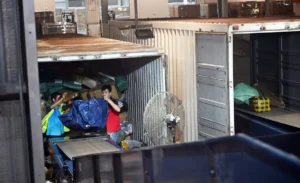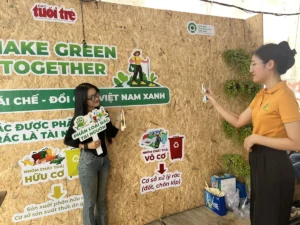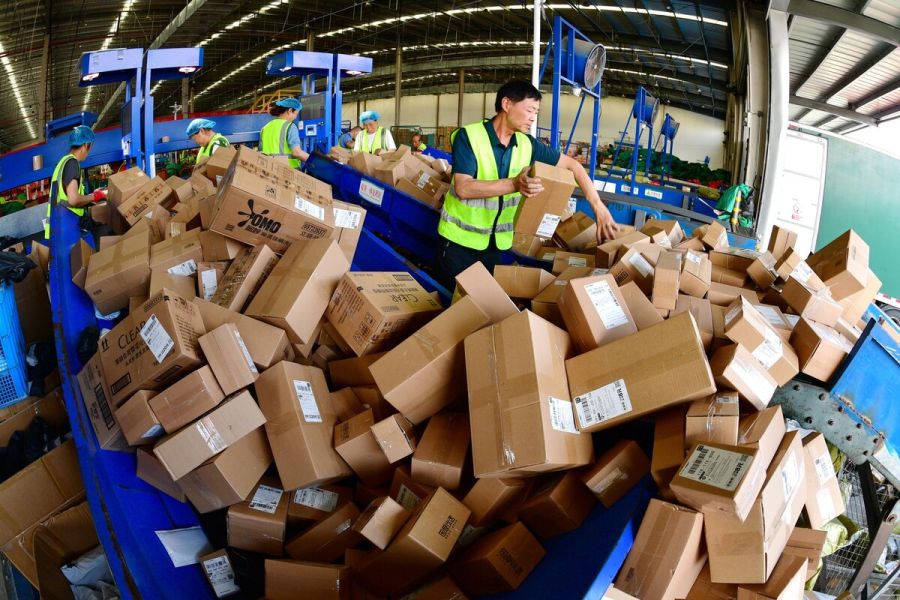Starting from February 18, low-value imported goods, under 1 million VND sent via express delivery service, will no longer be exempt from value added tax.
Low value imported goods are subject to VAT.
Starting tomorrow, February 18, low-value imported goods , under 1 million VND sent via express delivery service, will no longer be exempt from value added tax . This is the content of Decision No. 01/2025 of the Prime Minister.
The policy change comes amid a surge in e-commerce, which has significantly increased the number of small-value imported goods.
According to the General Department of Customs, in 2023, the total value of imported goods with a value of less than 1 million VND via express delivery services will reach 27.7 trillion VND. If a 10% VAT rate is applied, the state budget can increase revenue by about 2.7 trillion VND per year.
Associate Professor, Dr. Dinh Trong Thinh – Economist, Senior Lecturer of the Academy of Finance said that according to Resolution No. 78 of the Prime Minister in 2010, we have exempted taxes according to the Kyoto Convention in 1973, to harmonize and simplify customs procedures, promoting international trade. However, according to the General Department of Customs from January 1 to June 2024, on average, each month we have about 1.3-1.9 billion USD of small cross-border goods that are not subject to tax.
Obviously, with such a large quantity of goods, an average of about 500 million USD of goods cross the border every day without tax. Meanwhile, domestic manufacturing enterprises have to pay normal taxes and this creates an inequality between domestic enterprises and imported goods. It is the lack of tax that is reducing the competitiveness of domestic enterprises, even many enterprises are at risk of bankruptcy.
“Therefore, taxation creates fairness. In addition, this is also in line with our tax reform trend. That is to expand the taxable area, avoid tax losses and be in line with international trends. That is, there is now a relatively large digitization and customs clearance is not complicated for these small products. Therefore, most countries in the world have abolished this tax,” said Mr. Thinh.
Trend of abolishing tax exemption for low-value imported goods
Not only Vietnam, the global trend is also changing. With many countries eliminating the policy of exempting value-added tax for low-value imports.
Since 2021, countries in the European Union (EU) have eliminated the VAT exemption for shipments of 22 Euros or less.
The UK is also abolishing the VAT exemption for imported goods with a total value of £135 or less from 1 January 2021.
Australia also removed the provision of VAT exemption for goods valued at $666 or less.
Similarly, in Singapore, from January 1, 2023, the VAT exemption for small-value goods, especially in the e-commerce sector, will also be abolished.
To ensure fair trade practices, from May 1, 2024, Thailand will also collect value-added tax on all imported goods, regardless of value.
It can be seen that abolishing tax exemption for low-value goods is a common trend globally.
Associate Professor, Dr. Dinh Trong Thinh – Economic Expert, Senior Lecturer of the Academy of Finance commented: “For domestic enterprises, this is a guarantee of fairness and equality in competition. And domestic enterprises have the conditions to rectify and lower prices, thereby competing equally with imported goods. For consumers, they basically keep the same or may pay higher taxes. Because in reality, when not paying import tax, not paying VAT, sellers still sell at the normal price they used to sell. There may also be some foreign enterprises when importing and selling, they deduct taxes, in such cases, taxes can make the value of imported goods higher than normal. But only at the normal level”.
Currently, the implementation of VAT collection on low-value imported goods poses many challenges, as the customs declaration system and related processes are not designed to handle this tax collection effectively.
Regarding this issue, Associate Professor, Dr. Dinh Trong Thinh – Economic Expert, Senior Lecturer of the Academy of Finance gave his opinion: “To overcome these difficulties, first of all, for express delivery or postal units, it is necessary to quickly apply tax management software according to the new program. According to the General Department of Customs, we only need 4 weeks to work on using the software change smoothly in these businesses. Thus, with the preparation time in the past time, up to now, we can believe that, from February 18, customs clearance will be carried out on the basis of digital software of business units. There may be difficulties in the first few days, there may be the use of manual tools. But then, in the next few days, machinery, vehicles, and software will run normally, at that time, we hope everything will be quick and not affect the customs clearance process”.
















